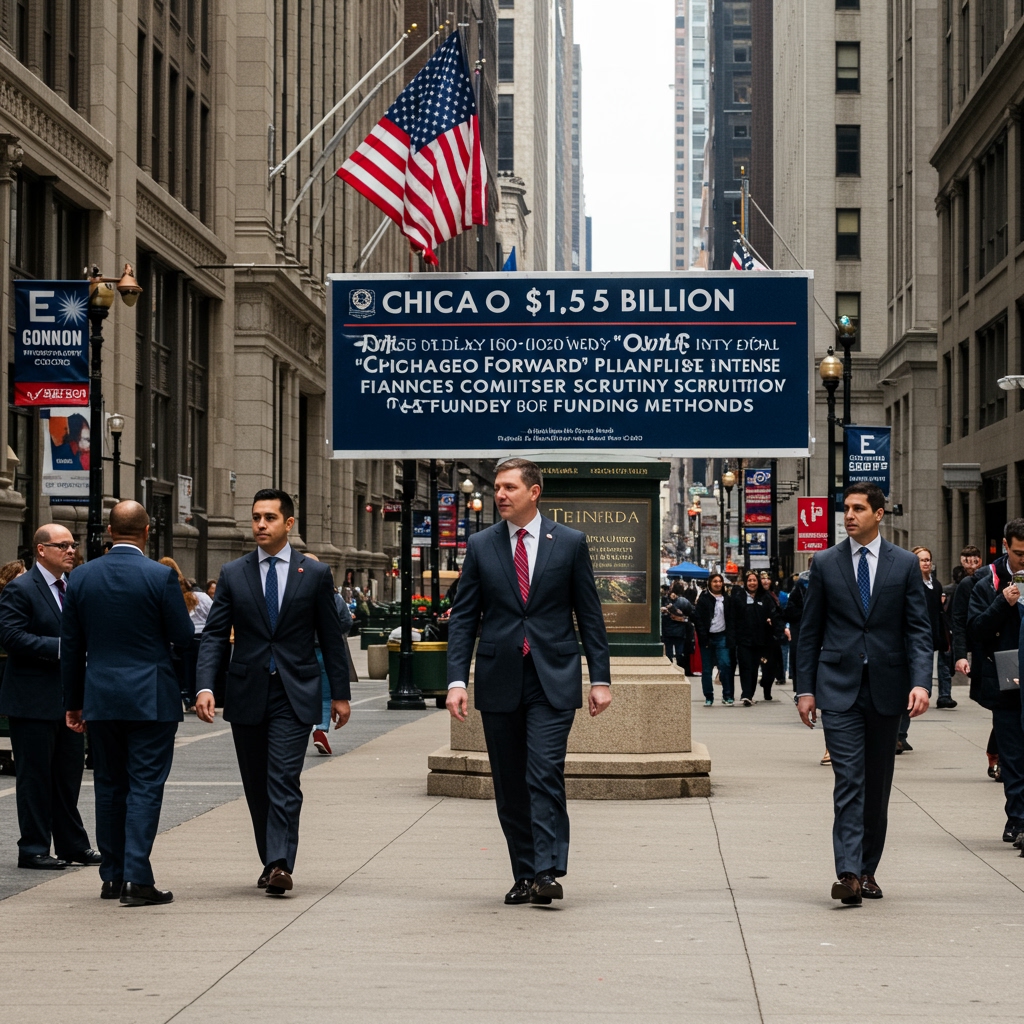The Chicago City Council has given its crucial approval to a substantial $1.8 billion bond measure designed to fund extensive and much-needed upgrades across the city’s public transit system. The focus of this significant investment is squarely on modernizing critical Chicago Transit Authority (CTA) train lines and improving essential bus infrastructure. The measure, formally known as Ordinance O2025-147, secured passage with a 35-15 vote following several hours of contentious debate within the council chambers today.
The Debate and Fiscal Concerns
The deliberation surrounding Ordinance O2025-147 was marked by vigorous discussion, primarily centered on the city’s debt capacity and the prioritization of capital projects. Aldermen expressed varying degrees of concern regarding the long-term fiscal implications of taking on additional debt, especially in light of other pressing municipal needs. Proponents, however, argued that delaying vital transit infrastructure improvements would ultimately prove more costly due to escalating repair needs and potential service disruptions.
The debate highlighted the delicate balance required in municipal finance – investing in essential services like public transit while managing the city’s financial health. Questions were raised about whether alternative funding sources had been sufficiently explored and if the planned projects aligned with the most urgent ridership needs. Despite these reservations, the majority of the council ultimately sided with the administration’s assertion that this bond package is a necessary step to prevent further deterioration of the transit system.
Mayor Johnson’s Stance and Vision
Mayor Brandon Johnson emerged as a strong advocate for the bond measure, emphasizing the investment’s critical necessity for improving service reliability across the vast CTA network. In his remarks, the Mayor also underscored the broader goals of the funding, highlighting its role in promoting sustainable transportation access across all neighborhoods in Chicago. He argued that a well-functioning public transit system is fundamental to equitable access to jobs, education, healthcare, and recreational opportunities throughout the city, particularly for communities underserved by other transportation options.
According to the Mayor’s office and proponents of the bond, years of underinvestment have left parts of the CTA system operating beyond their expected lifespan, leading to slower speeds, more frequent breakdowns, and a less comfortable rider experience. This bond package, they contend, represents a commitment to reversing that trend and building a more resilient and efficient transit future for Chicagoans.
Allocation of Funds and Project Scope
The $1.8 billion secured through this bond issuance is specifically designated for a range of critical infrastructure projects scheduled to be completed over the next five years. Key areas targeted for improvement include extensive track repairs necessary to eliminate slow zones and increase train speeds, comprehensive station overhauls to enhance accessibility, safety, and the overall rider experience, and significant signal system modernizations crucial for improving operational efficiency and safety.
The scope of work is expected to touch multiple CTA lines, addressing bottlenecks and aging components that currently hinder smooth operations. Improvements to bus infrastructure may include depot modernizations, technology upgrades, and enhancements to support the growing electric bus fleet. The multi-year timeline allows for phased implementation, minimizing disruption while ensuring that priority projects are addressed effectively.
Historical Context and Future Impact
This $1.8 billion bond package marks the largest dedicated transit capital bond package approved by the council in over a decade, signaling a renewed and significant commitment to the future of public transportation in Chicago. Its approval comes at a time when major cities across the globe are grappling with aging infrastructure and increasing demands on transit systems.
The successful passage of Ordinance O2025-147 is anticipated to have a transformative impact on the daily commutes of millions of Chicago residents and visitors who rely on the CTA. By addressing long-standing infrastructure deficits, the city aims to make public transit a more attractive, reliable, and viable option, potentially reducing road congestion and contributing to the city’s environmental sustainability goals. While the debate over funding mechanisms and priorities may continue, this vote represents a decisive step towards ensuring that Chicago’s transit system can meet the needs of its growing population for decades to come.














